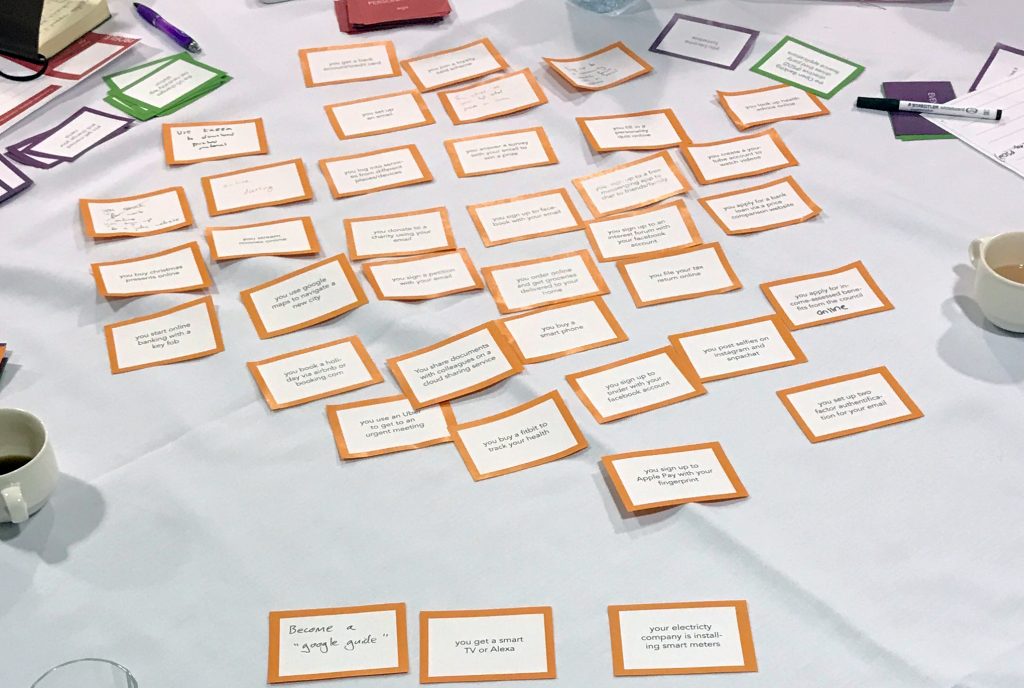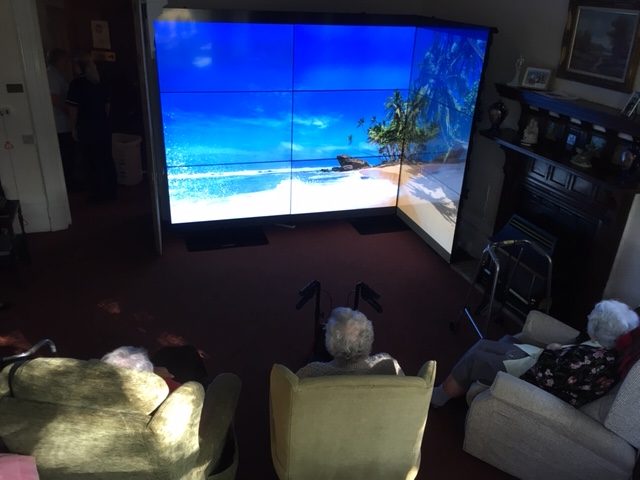PACTMAN: Trust, Privacy and Consent in Future Pervasive Environments
Tacita Display Personalisation Featured on Reuters
Tacita provides a novel framework to automatically adapt smart environments to the presence of users while still preserving their privacy. A robust and scalable implementation of the system has been rolled out at Lancaster and has been trialled on a campus-wide display testbed.
Tacita was featured by Reuters and a number of news outlets across the UK, India and United States. Reuters reporter and Head of Innovations, Jim Drury, met with PACTMAN and PETRAS researchers Nigel Davies and Mateusz Mikusz to discuss Tacita and the research behind the project.
Personalised public display screens | Check out PETRAS researchers Mateusz Mikusz and Nigel Davies giving the low downhttps://t.co/1GStznHh9u @IoTUKNews @LancasterUni
— PETRAS IoT Hub (@PETRASiot) February 9, 2018
The Tacita application is currently available on the Apple App Store at appstore.com/tacita. To find out more about Tacita, please visit the Personalised Displays Environment activity page or contact Nigel Davies, Peter Shaw, and Mateusz Mikusz.
This work was supported by the EPSRC under the PACTMAN and PETRAS research grants.
Exploring Temporalities of Consent
At the TIPS community building event in Preston in December 2017, we lead a workshop exploring the temporalities of consent by mapping out the relationships between different services and products a user may consent to over time. We investigated the potential relationships and connections between different services and how they might be influenced over time. This design workshop considered the life cycle and temporality of consent beyond the on-the-spot instance of a user agreement. This aimed to further understanding of how internal and external factors may affect user consent over time and throughout different aspects of user’s lives. Questions around how consent may be influenced by a user’s life circumstances as well as technological developments and legal requirements were creatively explored via a set of design cards and activities.

This workshop aimed to consider how more temporal or situation-specific forms of agreements may allow for more dynamically designed consent models. Moreover, the design activities aimed to expose and debate the relationships between different services, data and how they may develop over time. Changes in life circumstances may shift the way we view consent and what data we share. However, existing models of consent do not take this into account and services often do not allow a user to delete their account or the data that has been collected about them. So, what challenges for consent arise from changing circumstances in life and what are the relationships within such complex networks of shared data?
Wall-sized displays deployment for Dementia Care Home
Lancaster University and University of Manchester members of PACTMAN have been conducting a research project in collaboration with Heathfield Ladies Residential Home to explore the feasibility of a wall-sized display as an tool for reminiscing. The family-owned residential care home houses up to 25 female residents with varied stages of dementia.
The display wall (comprised of a 3×3 grid) has been installed into a common living room area, with one column rotated 90 degrees to create an ‘L’ shape to that provides a more immersive feel for viewers.

Early feedback has been very positive from the staff and families of residents of the care home. They have primarily had the screen showing nature scenes but the display wall has also been used as part of some staged/themed events organised by the staff for the residents. One example of this (pictured below) is the use of the screens to help set the scene of an Asian themed restaurant experience.

(Photo from ‘Heathfield Ladies Residential Care Home Warrington’ facebook page)
More details to follow in an upcoming paper.
Presentations and Demos at PerDis 2017
Members of PACTMAN will be presenting research papers and demonstrating PACTMAN technologies at this year’s Pervasive Displays Symposium (PerDis2017).
Welcome to PACTMAN!
Welcome to PACTMAN: Trust, Privacy and Consent in Future Pervasive Environments. PACTMAN is an EPSRC-funded project on Trust, Identity, Privacy and Security in the Digital Economy.